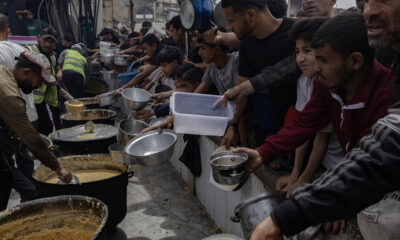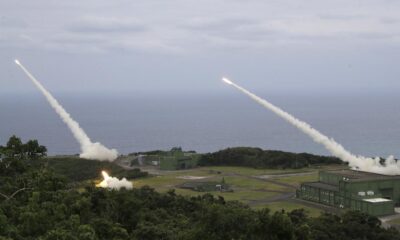Israeli forces have initiated limited ground incursions in Lebanon, according to the United States on Monday, while Hezbollah claimed to have targeted “enemy soldiers” at the border between the two countries.
A Lebanese security official reported that Israel had carried out at least six strikes in south Beirut, following orders from the Israeli army for residents in the Hezbollah stronghold to evacuate.
Despite calls for de-escalation from the international community, Israel has reaffirmed its commitment to combatting Hezbollah, sealing off part of the border after the killing of the group’s leader, Hassan Nasrallah.
Israeli Defence Minister Yoav Gallant emphasized that the battle is far from over, even after the significant strike on Beirut that took out Nasrallah, dealing a major blow to the group.
Biden’s Call for Ceasefire
U.S. State Department spokesman Matthew Miller informed reporters that Israeli officials have stated they are currently engaged in limited operations targeting Hezbollah infrastructure near the border.
Hezbollah’s deputy leader Naim Qassem mentioned that Hezbollah fighters are prepared in case Israel decides to launch a ground operation.
Lebanon’s national army, facing Hezbollah’s superior military strength, is reportedly repositioning troops further away from the border, as per a military official speaking to AFP.
Various world leaders have urged for de-escalation, with the UN Secretary-General’s spokesman, Stephane Dujarric, expressing the desire to avoid any form of ground invasion.
President Joe Biden, a key arms supplier for Israel, indicated earlier on Monday that he opposes an Israeli ground incursion, stating, “We should have a ceasefire now.”
Hezbollah’s Actions
Earlier in the month, Israel launched a series of deadly airstrikes targeting Hezbollah in Lebanon, resulting in the deaths of 95 people on Monday, according to Lebanon’s health ministry.
On Monday evening, the Israeli army issued evacuation orders for residents in three districts of southern Beirut.
Israeli military spokesman Avichay Adraee urged residents to evacuate buildings in proximity to Hezbollah facilities for their safety.
Reports of explosions and flashes were witnessed in the capital by AFP correspondents.
Hezbollah claimed to have targeted Israeli troops engaged in movements near the Lebanese border, with a source close to the group indicating that the soldiers were positioned right at the border.
Earlier, near the Lebanese border in northern Israel, Gallant stated that Israel will utilize all necessary means, including air, sea, and land operations.
He emphasized that while Nasrallah’s killing was a significant step, it does not mark the end of their efforts.
Fear and Displacement
Hezbollah initiated low-intensity strikes on Israeli troops following an unprecedented attack by its Palestinian ally Hamas on Israel on October 7, leading to Israel’s extensive assault on the Gaza Strip.
The border clashes have rapidly escalated in recent weeks.
On Monday, the Israeli army declared a portion of the border strip as a closed military zone.
Israel’s airstrikes in Lebanon have resulted in hundreds of casualties and forced up to a million people to flee their homes, according to Lebanese authorities.

Hezbollah and other groups have launched rockets, drones, and missiles at Israel, resulting in some injuries but no fatalities.
Prime Minister Benjamin Netanyahu of Israel has accused Iran, a supporter of Hamas, Hezbollah, and other armed groups, of further escalating the conflict in the region.
Iran has threatened Israel with “destruction” following Nasrallah’s death, although the foreign ministry clarified on Monday that Iran would not deploy fighters to confront Israel.
Lebanese Prime Minister Najib Mikati has called for a ceasefire based on a recent U.S.-French proposal, urging an end to Israeli aggression against Lebanon.
Earlier on Monday, an Israeli strike targeted a building in central Beirut, with an armed Palestinian group claiming the lives of three of its members.
The strike, a rare occurrence in the city center, sparked fear among residents.
A resident of central Beirut, Kahier Bannout, expressed shock at the situation, stating, “Everyone is afraid.”
Lebanon’s Health Minister Firass Abiad reported over 1,000 fatalities since September 17.
The UN refugee agency chief, Filippo Grandi, highlighted that more than 200,000 individuals are displaced within Lebanon, with over 100,000 seeking refuge in neighboring Syria.
International Response
France announced the deployment of a naval ship to Lebanon as a precautionary measure for potential evacuation of French citizens.
Foreign Minister Jean-Noel Barrot, the first high-level diplomat to visit Beirut amidst escalating tensions, expressed cautious optimism for a ceasefire but emphasized the urgency of the situation.

U.S. Secretary of State Antony Blinken reiterated the importance of diplomacy in resolving the conflict in the region.
He affirmed the commitment of the United States to advancing diplomatic solutions for the Israel-Lebanon border situation, as well as for a Gaza ceasefire and a hostage-release agreement.
Efforts to broker a deal for a ceasefire and hostage release have been ongoing for months, with critics of Israeli Prime Minister Netanyahu accusing him of hindering the process.
Reports from AFP indicate a significant decrease in the number of Israeli airstrikes in Gaza in recent days.
An assessment by the UN Satellite Centre revealed that two-thirds of structures in the Gaza Strip have sustained damage over the course of nearly a year of conflict.
Hamas’s attack on Israel on October 7 resulted in the deaths of 1,205 individuals, primarily civilians, according to an AFP tally based on official Israeli figures that include hostages killed in captivity.
Israel’s retaliatory military actions have led to at least 41,615 casualties in Gaza, the majority being civilians, according to figures provided by the health ministry of the Hamas-run territory, deemed reliable by the UN.
Published – October 01, 2024 05:02 am IST








































